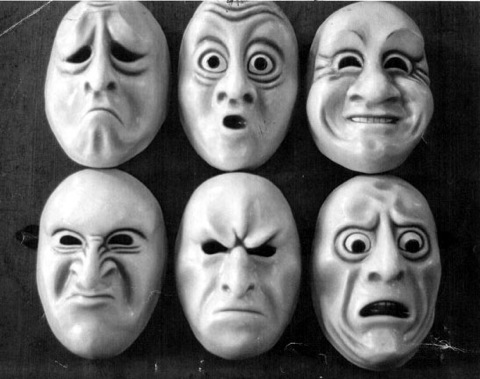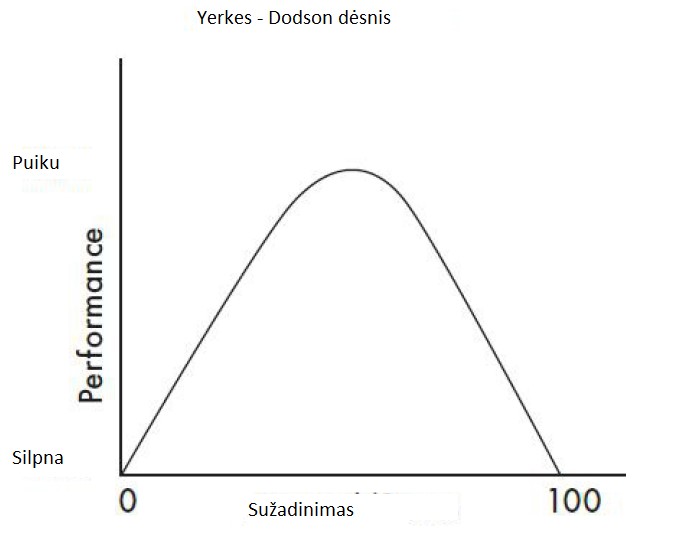Ankstesnė knygos „Mental Game of Poker“ dalis: Pokerio psichologija. Emocijos. Galutinis problemos panaikinimas ir blogai funkcionuojantis protas
Two Reasons Causing Emotions
At the beginning of this chapter, it is explained how emotions are caused by our game flaws existing in unconscious competence, which are affected by things like bad beats, mistakes, and losses. There is another place where emotions are created that must be mentioned – the mind.
As soon as you realize that you are affected by anxiety, anger, or weak motivation, your mind can amplify these emotions. So you start worrying because you have already started worrying; you tilt even more because you realize that you are angry; your motivation decreases even more because you understand how low it already is. These additional layers further increase the amount of emotions you have to deal with, making it even harder to control yourself.
Accumulated Emotions
Usually, accumulating emotions rise and fall depending on the day. When you lose a bunch of money, the frustration that arose while playing begins to fade as soon as you finish playing, until it eventually disappears completely. For some players, frustration may disappear after a few minutes, or if it was a very bad day, it may take a few hours. In any case, the next time you sit down to play, it seems like the frustration never existed.
However, sometimes emotions do not disappear completely. In such a case, the next game is not a fresh start because there are lingering emotions from the last time you played. It may not seem like much, but every additional emotion (tilt, overconfidence, doubts) means that your breaking point has shifted downwards, resulting in needing to accumulate fewer emotions to reach that limit. This means you will start tilting faster or perhaps your mind will cloud after playing a few big pots.
Thus, emotions accumulating over a few days make it harder to play well during good or bad periods. When such periods last, it becomes increasingly difficult for the brain to “reset” and get rid of the emotions accumulated during the last sessions. They accumulate little by little, day by day until tilt occurs after the first lost hand or you stop playing as soon as you win a few buy-ins because you are afraid of losing them.
Emotions can accumulate for weeks, months, and even years. Take a player who believes he is always unlucky and does not get the luck he deserves. Over months and years, every time he loses a coin flip or a fish sucks out against him, that anger becomes stronger. Such emotional baggage becomes very burdensome and is a result of inadequate reactions to situations. Then a simple coin flip loss especially tilts because the reaction is not only to the recent loss but to all previous ones.
Accumulated emotions or emotional baggage is the most challenging area of psychological improvement. The reason is that you constantly have to deal with emotions arising from today's session (losses, mistakes, great success), and on top of that, there are lingering emotions from before. From the slightest spark, such emotions erupt with such intensity that it becomes impossible to control yourself and think clearly – you start tilting, mentally shutting down while playing a big pot, or thinking you are a poker god. The only way to control yourself and reduce accumulated emotions at such moments is to work on yourself away from the poker table. Such work is no different from any other attempt to improve in a complex area of poker. For example, equity or ICM (Independent Chip Model) calculations are just as complex a process that cannot be performed simultaneously while playing.
Spectrum of Emotions
Emotions have a certain spectrum, the intensity of which increases as they accumulate. The four major emotions – anger, fear, motivation, and confidence – also have their spectrums:
- Anger ranges from slight irritation to uncontrollable rage
- Fear ranges from simple uncertainty to severe pathological fear.
- Motivation ranges from laziness and hopelessness to great inspiration.
- Confidence ranges from complete lack of confidence to feeling like a poker god
Emotions existing on the same spectrum are usually separate and random. By systematizing emotions on the appropriate spectrum, it becomes easier to recognize a certain accumulating emotion. The more effectively you can recognize an accumulating emotion, the faster you can take action and prevent the boundary from being crossed. Here is an example of how emotions accumulate on a certain spectrum: a player may feel some uncertainty after an unsuccessful day of losses, doubting whether it was bad variance or bad play. After a few more unsuccessful days, he starts doubting his decisions, stops trusting his intuition, and makes mistakes. Then, playing for bigger pots, anxiety starts to take over because there is a fear of making mistakes. Finally, those mistakes happen because the mind is not functioning properly. When bad play combines with bad variance, anxiety starts to take over even before sitting at the table. Just thinking about the game starts to cause anxiety. Over time, the initial uncertainty turned into a strong fear of losing. The player reduces his playing time and instead spends hours looking for ways to play well and avoid losses.
Doubts, anxiety, and phobia are emotions accumulated over time due to uncertainty.
Performance and Emotions
Emotions are essential for performance. The problem arises when there are too many or too few of those emotions. This applies to both good and bad emotions. Overconfidence is a problem because it shuts down your thinking. Fatigue is a problem because there is no energy for thinking.
Understanding the relationship between emotions and performance, as outlined below, facilitates psychological game improvement. The Yerkes-Dodson law describes the relationship between arousal (a psychological term describing energy, emotion, concentration, or stress) and a player's performance. This law states that as emotions rise, your performance improves, but only up to a certain point.
When emotions rise to a breaking point (the top of the curve), performance starts to decline because the emotional system shuts down thinking. You cannot maintain a high level of performance because you cannot think normally, and if you cannot think normally, you cannot use the skills you just learned (conscious competence).
On the left side of the curve, the opposite happens. When you do not have enough emotions (you are tired, unmotivated) to think, you must gather energy and force the part of the brain responsible for thinking to work; otherwise, you will play just as poorly as when you are heavily tilting.
The next chapter provides a general strategy designed to help maintain the emotional level at the highest point of the performance curve. This will allow you to play your best poker much more often and solve the problems that cause chaos in your game.
The series of articles is prepared based on Jared Tendler's poker psychology book: “Mental Game of Poker”. Those who want to purchase the original, which is in English, can do so at amazon.com








